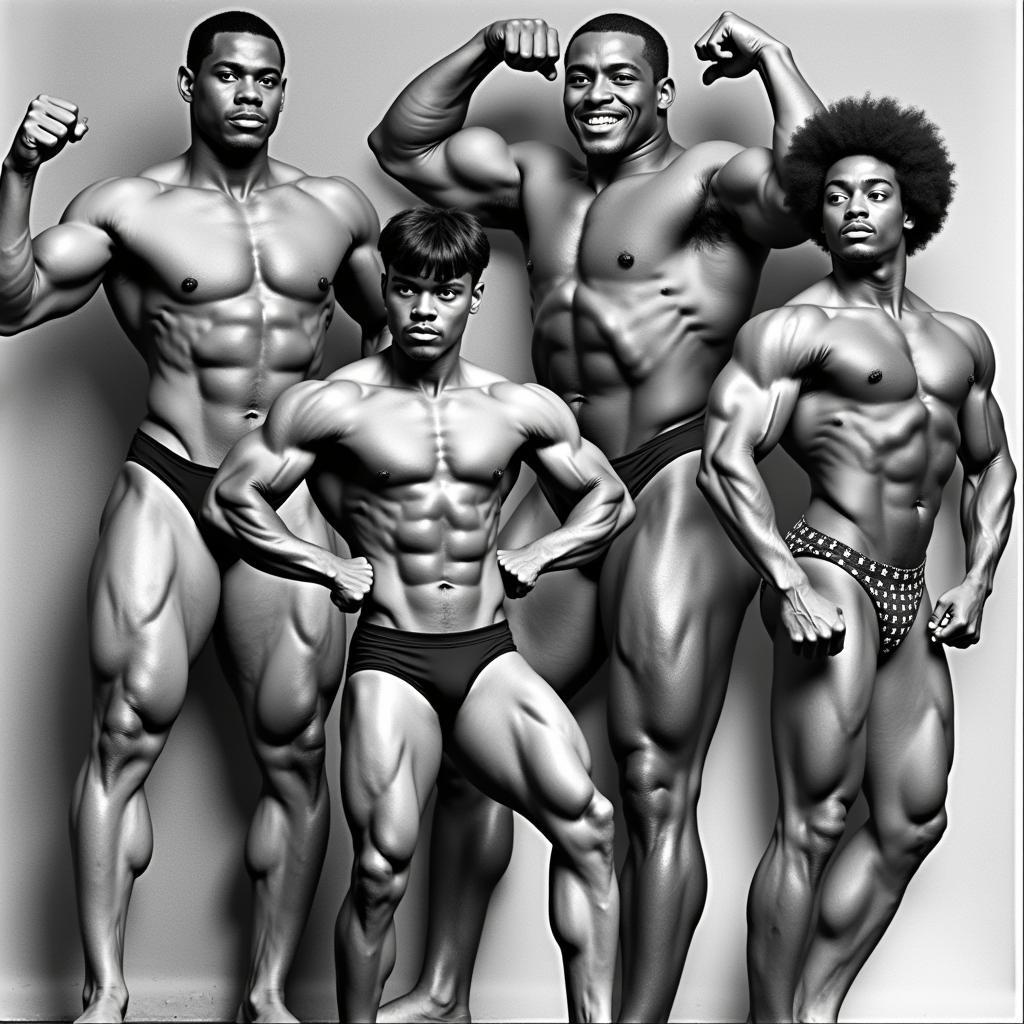Exploring the Rich Tapestry of African American Cultural Autobiography
The African American Cultural Autobiography is a powerful and unique genre that explores the multifaceted experiences of Black Americans within the context of their history, culture, and personal journeys. It’s a genre that transcends traditional forms of storytelling and embraces the nuances of racial identity, cultural heritage, and the complexities of navigating a society marked by both challenges and resilience. This article delves into the heart of the African American cultural autobiography, examining its evolution, key themes, and the profound impact it has had on shaping our understanding of Black American history and identity.
Understanding the Origins: Tracing the Roots
The origins of the African American cultural autobiography can be traced back to the earliest narratives of enslaved Africans who sought to document their experiences and challenge the dehumanizing portrayals prevalent in the dominant narrative. These narratives often focused on themes of freedom, resistance, and the enduring spirit of the Black community in the face of adversity.
The Era of Emancipation: A New Wave of Storytelling
The period following the Civil War witnessed an explosion of African American autobiography. Writers like Frederick Douglass, Booker T. Washington, and W.E.B. Du Bois, used their narratives as platforms to advocate for social change, challenge racial prejudice, and grapple with the complexities of racial integration in a post-slavery America.
“Autobiography was not just a way for Black writers to tell their stories,” notes Dr. Maya Evans, a renowned historian specializing in African American literature, “It was a powerful tool to shape the public perception of Blackness, challenge stereotypes, and lay the groundwork for a more just and equitable society.”
Thematic Explorations: Navigating Identity and Belonging
The African American cultural autobiography delves into a rich tapestry of themes that resonate with the lived experiences of Black Americans across generations.
The Weight of History: Reckoning with the Past
The legacy of slavery, Jim Crow segregation, and systemic racism forms a central thread in many African American autobiographies. Writers confront the historical wounds that have shaped their lives, explore the impact of intergenerational trauma, and challenge the continued existence of racial inequality.
Claiming Identity: Embracing Cultural Heritage
A significant aspect of the genre is the exploration of Black identity and cultural heritage. Writers delve into the richness of their traditions, examine the role of family, religion, and community in shaping their lives, and celebrate the resilience and creativity of Black culture.
Resistance and Empowerment: A Legacy of Strength
The African American cultural autobiography often celebrates the strength, resilience, and ingenuity of Black Americans in the face of adversity. Stories of activism, community organizing, and artistic expression serve as powerful testaments to the enduring spirit of the Black community.
Voices of the Present: Contemporary Narratives
Contemporary African American autobiographies continue to push boundaries, explore new themes, and engage with the complexities of contemporary Black life.
The Intersections of Race and Gender: Challenging Stereotypes
Writers like Audre Lorde, Maya Angelou, and bell hooks have challenged the dominant narratives surrounding Black women and their experiences. They explored themes of sexism, patriarchy, and the intersections of race and gender in shaping Black women’s lives.
Navigating a Globalized World: Finding Identity in a Changing Landscape
Contemporary autobiographies address the complexities of Black identity in a globalized world. Writers explore the impact of immigration, diaspora, and the evolving experiences of Black communities across the globe.
The Power of Storytelling: Amplifying Black Voices
The African American cultural autobiography continues to serve as a powerful tool for amplifying Black voices, sharing personal experiences, and promoting understanding and empathy. It reminds us that history is not simply a collection of facts, but a complex tapestry of human stories that shape our understanding of the world.
The Legacy of the African American Cultural Autobiography
The African American cultural autobiography has had a profound impact on American literature, history, and social consciousness. It has provided a crucial platform for Black voices to be heard, challenged stereotypes, and fostered a deeper understanding of the Black experience.
FAQ
Q: What are some key characteristics of the African American cultural autobiography?
A: Key characteristics include a focus on personal experience within the context of historical and cultural forces, exploration of themes related to race, identity, and resilience, and a commitment to challenging dominant narratives and promoting social change.
Q: How has the African American cultural autobiography evolved over time?
A: The genre has evolved from narratives of survival and resistance under slavery to contemporary accounts that explore the complexities of Black identity in a globalized world, encompassing themes of gender, sexuality, and the intersections of race and other social categories.
Q: What is the significance of the African American cultural autobiography in contemporary society?
A: It continues to be a powerful tool for amplifying Black voices, challenging stereotypes, and fostering understanding and empathy. It reminds us that history is not simply a collection of facts, but a complex tapestry of human stories that shape our understanding of the world.
Q: Are there any contemporary African American writers whose autobiographies you would recommend?
A: Yes, there are many talented contemporary writers. Some notable examples include Ta-Nehisi Coates, Michelle Obama, Roxane Gay, and Bryan Stevenson.
Q: How can I learn more about the African American cultural autobiography?
A: You can explore resources like academic journals, literary databases, and online archives dedicated to African American literature and history. You can also engage with reading groups, attend conferences, and support organizations that promote the work of Black writers.



